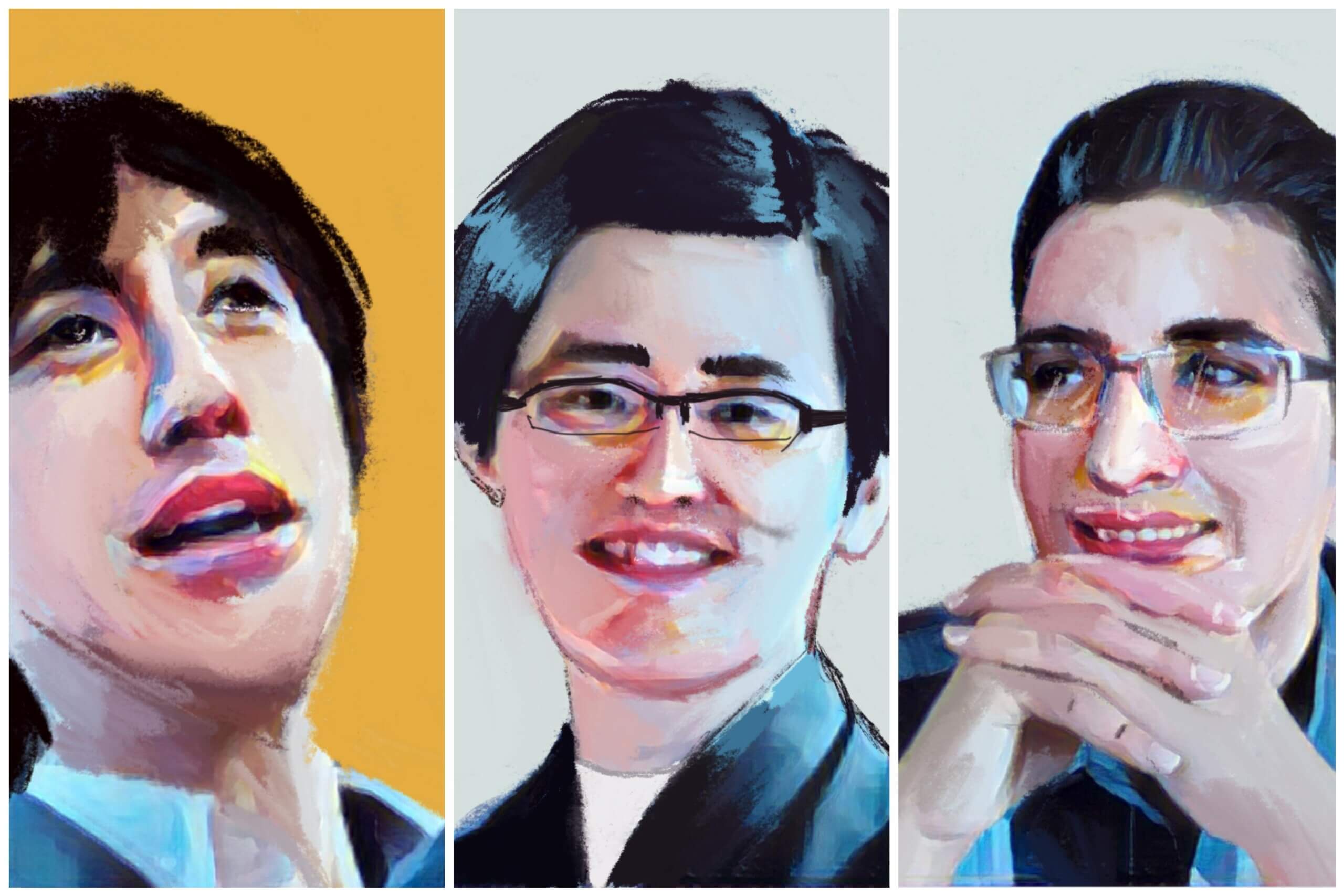Researchers find purpose and meaning in their work in different ways, and what they define as success can vary. They may see success as having a good publication record, getting a desired promotion, winning a prestigious award, creating positive social impact, or perhaps a combination of all of these. Each of these is a challenging goal, needing researchers to adopt unique strategies and depend on specific resources or support.
So, what helps them achieve their goals? What would simplify their work and give them more time to focus on their research? We sought views from researchers who have been associated with us and asked them to share their personal experiences with us. This post is the first of a two-part series featuring interviews with a diverse group of researchers across disciplines.
Motoaki Bamba, Japan
Associate Professor, Kyoto University
Research areas: Optical Engineering and Photonics

Collaborations always expanded my research interest, which has also been quite essential for the growth in my career.
What has helped you achieve success and growth in your career?
Connections with a variety of researchers in discussions, collaborations, etc. have been quite important for the growth in my research career. It has been quite fruitful to talk directly with the researchers who wrote articles that I was interested in. Collaborations always expanded my research interest, which has also been quite essential for the growth in my career. Any research articles and applications for grants, positions, etc. are basically reviewed by researchers from similar disciplines. Also in this sense, the connections have been quite essential for my career.
What are aspects of your work that can be simplified, so that you have more time to focus on your research?
I would like to record my comments on research articles and books I reference by using DOI more efficiently. There are already some services and I am using one of them. However, when I read articles, the references therein appear as just text or hyperlinks. I have to put the information of the references by hand for checking my comments on the references. If articles are automatically connected in the service, I can quickly check my comments on the references and have more time to focus on my research.
Shervin Hashemi, Korea
Post-Doctoral Fellow, Institute for Environmental Research (IERY), Yonsei University
Water, Sanitation and Sustainable Solutions

I would like to see a day where no one is left behind in terms of access to clean water and sanitation.
What has helped you achieve success and growth in your career?
First, it is important to understand the definition of success and growth in a career. The definition varies from one person to another. About me, I think I still have a long way ahead to gain an achievement that can be called a true success. I still have a lot of plans for the future.
In my whole life, I always tried to aim high and take action. To do this, having strong motivation is essential. I would like to see a day where no one is left behind in terms of access to clean water and sanitation. I think this is a very high aim at the moment. But it is indeed my motivation that gives me the energy for doing my best to make this a lifelong pursuit.
My work experience has shown that there will be obstacles along the way, but I always try to earnestly work at what I believe in until the day when the world can celebrate achieving the 6th Sustainable Development Goal (SDG6).
What are aspects of your work that can be simplified, so that you have more time to focus on your research?
When research proceeds to a sufficient level that the results are ready to be published, choosing the right journal, formatting the articles, and possible actions to prevent desk rejection are quite challenging and time-consuming. Receiving help in this regard can be very helpful to me. In this regard, I am using the services provided by Editage for about a decade. These services are very helpful for me and I wish to thank everyone who at Editage for all their kind efforts.
Shuji Kitahara, Japan
Associate Professor, Tokyo Women’s Medical University
Life Sciences and Biomedical Engineering

Multidisciplinary knowledge and interactions helped me add to my achievements through collaborative research and co-authorship
What has helped you achieve success and growth in your career?
I guess it’s multidisciplinary knowledge and interactions. As a medical researcher, I was only involved in oncology (pathological research) first, but from the age of about 30, I started interacting with people from different fields, including politics and economics, enrolled in courses other than those on medicine, such as social sciences. And this helped me add to my achievements through collaborative research and co-authorship.
What are aspects of your work that can be simplified, so that you have more time to focus on your research?
One is the submission of papers and the communication with the journal. Also, although online communication has become normal now, I used to need to travel, which wasted my time. Additionally, I wish there was a service that could help me brush up my presentation materials at a reasonable cost.
Researcher success depends on multiple factors, which in turn tend to be interconnected. There is no dearth of individual resources, tools, support systems, and services available to researchers to help them with their myriad tasks. However, these still fall short of the mark in the bigger scheme of things because there is no single “home” for them. Researchers still waste time accessing multiple platforms for different purposes, with no integration or communication between these platforms.
Our interactions with researchers like those featured in this series flagged this as a major gap that’s taking more time away from them. With Researcher.Life, we aim to eliminate this gap by giving them a unified platform they can use for every need at every stage of their careers. Learn more about how we’re doing this by exploring Researcher.Life.
Watch out for the second part of this series to read interesting experiences and views of more researchers!



